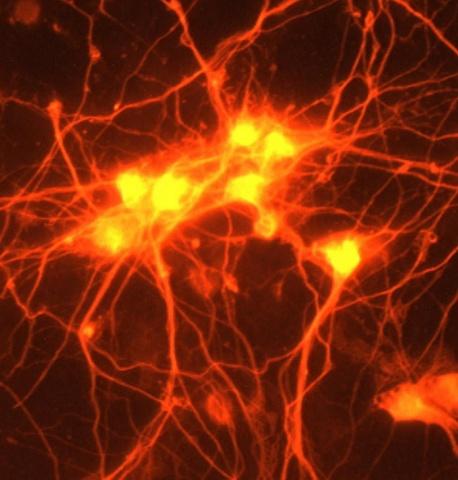
This February, members of the Duke Department of Neurology contributed to 10 new research articles in peer-reviewed journals. At the microscopic level, new studies examined how ion channels in endothelial cells may contribute to hypertension associated with obesity, and reviewed how DNA damage contributes to neuronal death in Parkinson’s disease. And at the system-wide level, our Stroke team discussed the massive IMPROVE Stroke Care project, which includes a network of nearly 100 hospitals, and hundreds of other agencies and communities. Read short summaries of each of those articles, and find links to the original stories, below.
Neuromuscular Disease
- Neuromuscular ultrasound is an important, emerging technique for evaluating peripheral nerve and muscle disease. Lisa Hobson-Webb, MD, wrote a review article in Muscle and Nerve that discusses technological advances, limitations of the technique, and other important concerns in this field. Read that article here.
- Hobson-Webb also contributed to an article that discusses the challenges in acquiring reproducible measurements of shear wave speed in the median nerve and suggests methods for improving reproducibility. Read that Ultrasound in Medicine & Biology article here.
Movement Disorders
- Laurie Sanders, PhD, and Nicole Calakos, MD, PhD, wrote a short “hot topics” discussion of new research examining the metabolism of monoamine oxidases (MAO) for energy production in Parkinson’s disease. Read that discussion in the latest issue of Movement Disorders.
- To date, research has developed no therapies for dystonia that slow the progress of dystonia. The NIH recently convened national leaders in the field, including Nicole Calakos, MD, PhD, to discuss challenges and opportunities to better understand and develop therapies for this complex condition. Read their review of our current knowledge, research gaps, and future priorities for the condition in Neurology here.
Memory disorders
- Globular glial tauopathy (GGT) is a rare 4-repeat tauopathy characterized by the accumulation of tau globular inclusions in astrocytes and oligodendrocytes. First author Andy Liu, MD, and colleagues report the case of a patient with relevant GGT-type III pathology and provide a theoretical framework to help providers predict similar conditions. Read that article here in Neurocase.
- Amyloid-β PET scans are likely to become an integral part of the diagnostic evaluation for Alzheimer's disease. However, little is known about how patients and their care partners interpret those results. Senior author Brenda Plassman, PhD, James Burke, MD, PhD, and colleagues analyzed survey data from nearly 2,000 patient-care partner dyads about this subject, finding accurate reporting of scan results for patients with MCI or dementia, but also the need for better communication about terminology and other areas. Read that study here.
Translational Brain Sciences
- Despite major advances in our understanding of the origins of Parkinson’s disease, we still have no disease-modifying therapies for this condition. Laurie Sanders, PhD, and Claudia Gonzalez‐Hunt, PhD, wrote a review article that discusses an exciting new avenue that may bridge that gap: the role that DNA damage and repair play in neuronal death. Their article discusses the evidence for the types of DNA damage and the dysfunctional DNA repair pathways that are involved with Parkinson’s. Read their article in the Journal of Neuroscience Research here.
Stroke
- The Implementation of Best Practices For Acute Stroke Care—Developing and Optimizing Regional Systems of Stroke Care (IMPROVE Stroke Care) project is a coordinated effort to implement existing guidelines and systematically improve the acute stroke system of care in the Southeastern United States. The American Heart Journal recently published an overview of this massive project, which involves nine hub hospitals, close to 80 spoke hospitals, and hundreds of other agencies and communities. Read that article by lead authors Carmen Graffagnino, MD, Matthew Ehrlich, MD, MHS, Shreyansh Shah, MD, Brad Kolls, MD, PhD, and Ying Xian, MD, PhD, as well as colleagues at the Duke Clinical Research Institute and Duke Cardiology.
- Black Americans are three times more likely than white Americans to have small-vessel-type ischemic strokes (SVS). First author Nada El-Husseini, MD, Carol Colton, PhD, and colleagues examined whether inflammatory/endothelial dysfunction biomarkers are associated with cognition after SVS in this group. Read what they found in the Journal of Stroke and Cerebrovascular Disease.
Other topics
- A new Circulation study has found an important new factor in obesity-associated hypertension: dysfunction of TRPV4 ion channels in endothelial cells. A research team including Wolfgang Liedtke, MD, PhD, found that Ca2+ influx through these channels lowered blood pressure in non-obese mice, and that this response was diminished in obese mice. Read that article here.